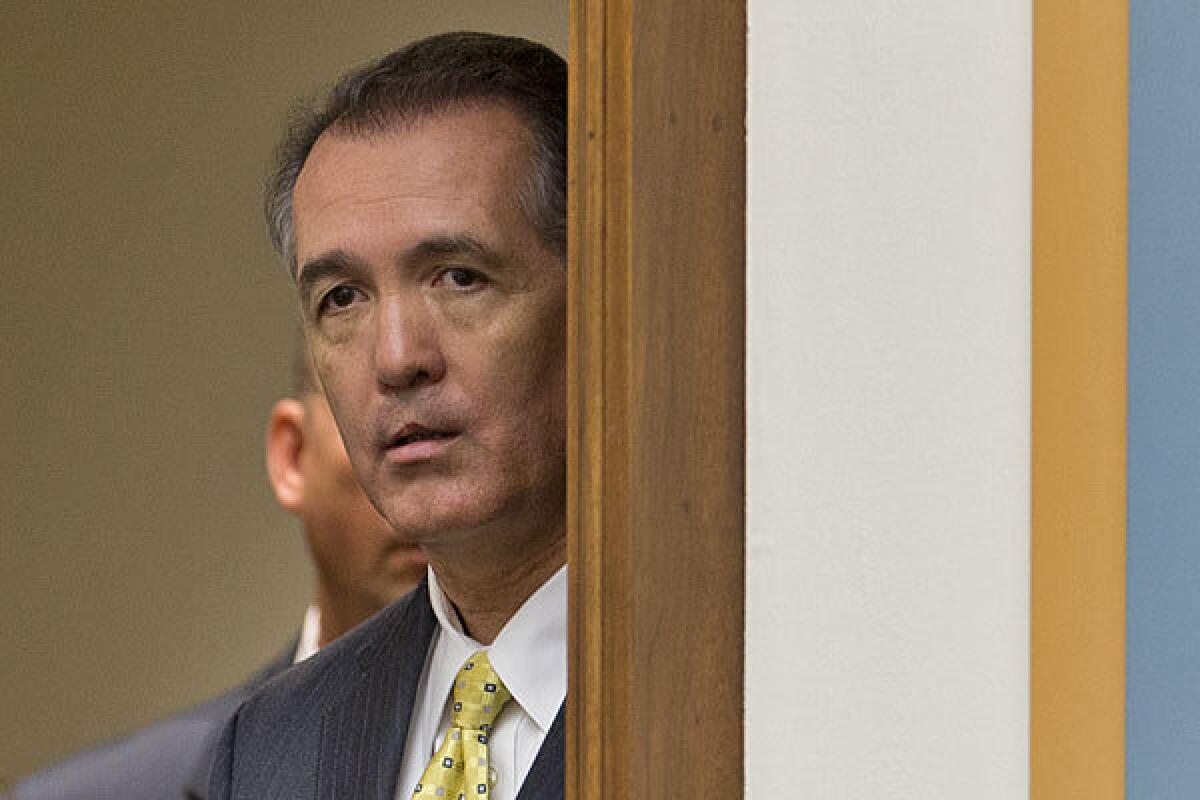Led by Republicans, House passes measure to limit abortions

WASHINGTON – The House of Representatives passed legislation to enact stringent restrictions on abortion Tuesday, acting on an issue championed by social conservatives in the Republican majority and inviting a possible new challenge to constitutional abortion rights.
The bill approved largely along party lines would prohibit abortions after the 20th week of pregnancy, with limited exceptions to save the life of the mother or in cases of rape or incest, so long as they have been reported to law enforcement.
The final vote was 228 to 196. Six Republicans voted against the measure, while as many Democrats voted for it.
The 1973 Roe vs. Wade decision allowed abortions until a fetus is viable outside the womb, generally considered to be at 24 weeks. The U.S. 9th Circuit Court of Appeals last month struck down an Arizona law that also would have banned abortions after 20 weeks of pregnancy. Other states with Republican-led legislatures have also pushed new abortion restrictions.
House Democrats protested the measure as unconstitutional and a new assault by the GOP on women’s reproductive rights in what they call a “war on women.”
The Democratic-controlled Senate is unlikely to take up the measure. The White House said advisors would recommend President Obama veto the bill if it were to pass, calling the legislation “a direct challenge to Roe vs. Wade” that “shows contempt for women’s health and rights, the role doctors play in their patients’ healthcare decisions, and the Constitution.”
Republican leaders, though, said it was needed legislation after a Philadelphia abortion doctor was convicted on three counts of first-degree murder for killing babies after they were delivered.
“After this Kermit Gosnell trial and some of the horrific acts that were going on, [the] vast majority of the American people believe in the substance of this bill, and so do I,” House Speaker John A. Boehner (R-Ohio) told reporters Tuesday.
Rep. Jerry Nadler (D-N.Y.) said the Gosnell case was a “red herring.” “What Dr. Gosnell did was murder, plain and simple,” he said. “And as horrible as everything Dr. Gosnell did was, it was murder, it was illegal, and it has nothing to do with what we’re discussing.”
The bill was amended last week to make an exception for pregnancy caused by rape or incest, after a hearing in which its sponsor, Rep. Trent Franks (R-Ariz.), sparked an uproar when he argued against such a provision, saying that “the incidence of rape resulting in pregnancy are very low.”
Democrats tied the statement to one from Missouri Senate candidate Todd Akin last year about what he called “legitimate rape,” which hurt the party’s image in a key swing constituency: moderate women.
“I just find it astonishing to hear a phrase repeated that the incidence of pregnancy from rape is low,” said Rep. Zoe Lofgren (D-San Jose). “The idea that the Republican men on this committee think they can tell the women of America that they have to carry to term the product of a rape is outrageous.”
Democrats also said the exceptions added by Republicans still fell short, because they apply only when the rape or incest has been reported, and women often are reluctant to report the crimes.
“I thought we had established this last fall with the election. Americans are tired of Congress taking up extreme and divisive legislation targeted at women’s health,” Rep. Diana DeGette (D-Colo.) said at a news conference before the vote. “Many of our Republican colleagues don’t seem to have gotten that message.”
A recent Gallup poll found that Americans’ views on abortion had changed little after the Gosnell trial, with 78% saying it should be legal under certain circumstances, compared with 20% who said it should be illegal in all circumstances.
Republican leaders sought better public faces for the legislation Tuesday after Franks’ comments. Rep. Virginia Foxx (R-N.C.) led an initial floor debate on a procedural motion tied to the bill. Rep. Marsha Blackburn (R-Tenn.) took the lead for the party in the final floor debate, during which eight of the 11 Republican speakers were women. There are 19 Republican women in the House, none of whom serve on the Judiciary Committee that first considered the bill.
michael.memoli@latimes.comTwitter: @MikeMemoli
More to Read
Start your day right
Sign up for Essential California for news, features and recommendations from the L.A. Times and beyond in your inbox six days a week.
You may occasionally receive promotional content from the Los Angeles Times.







